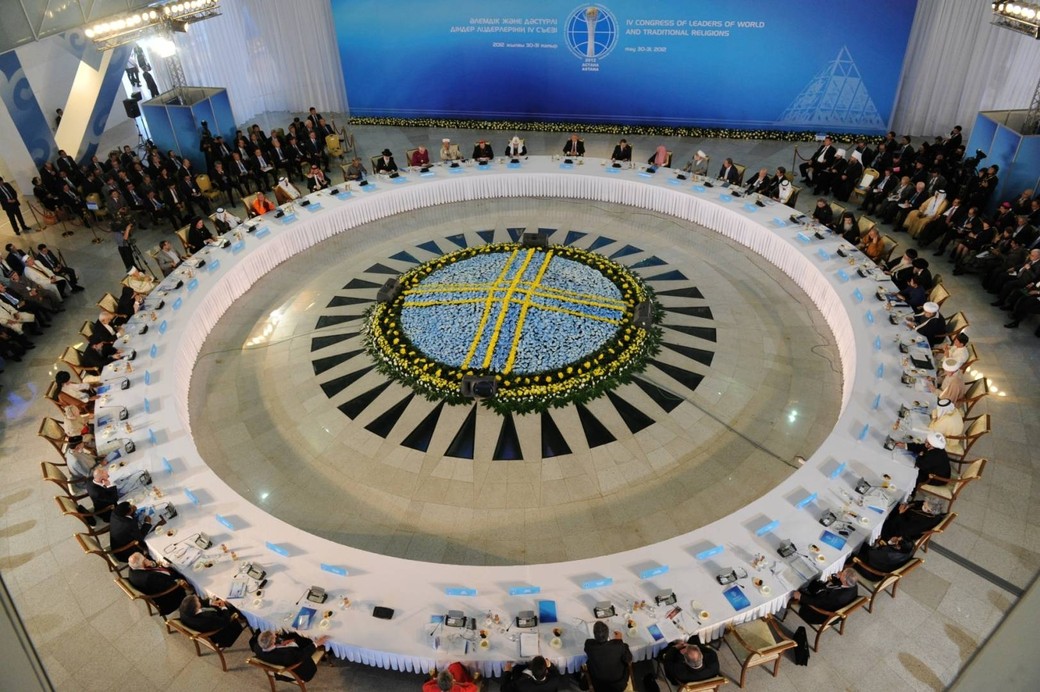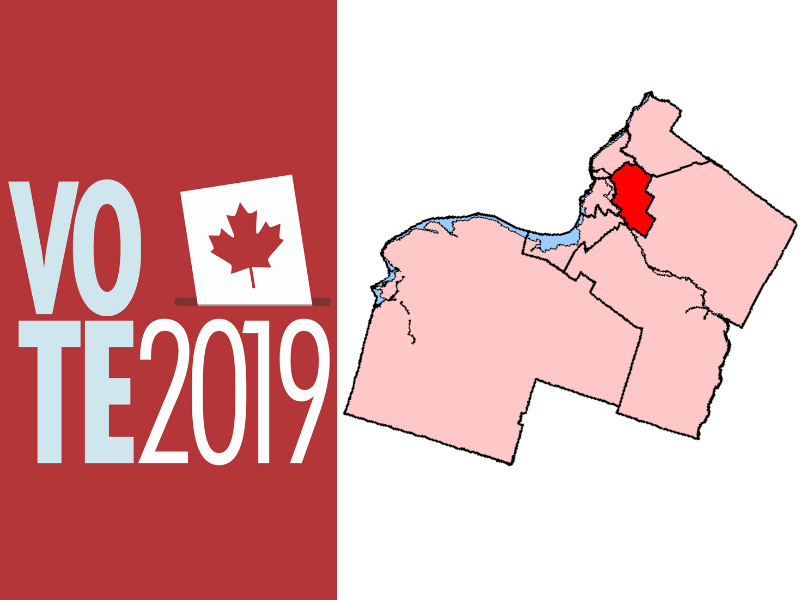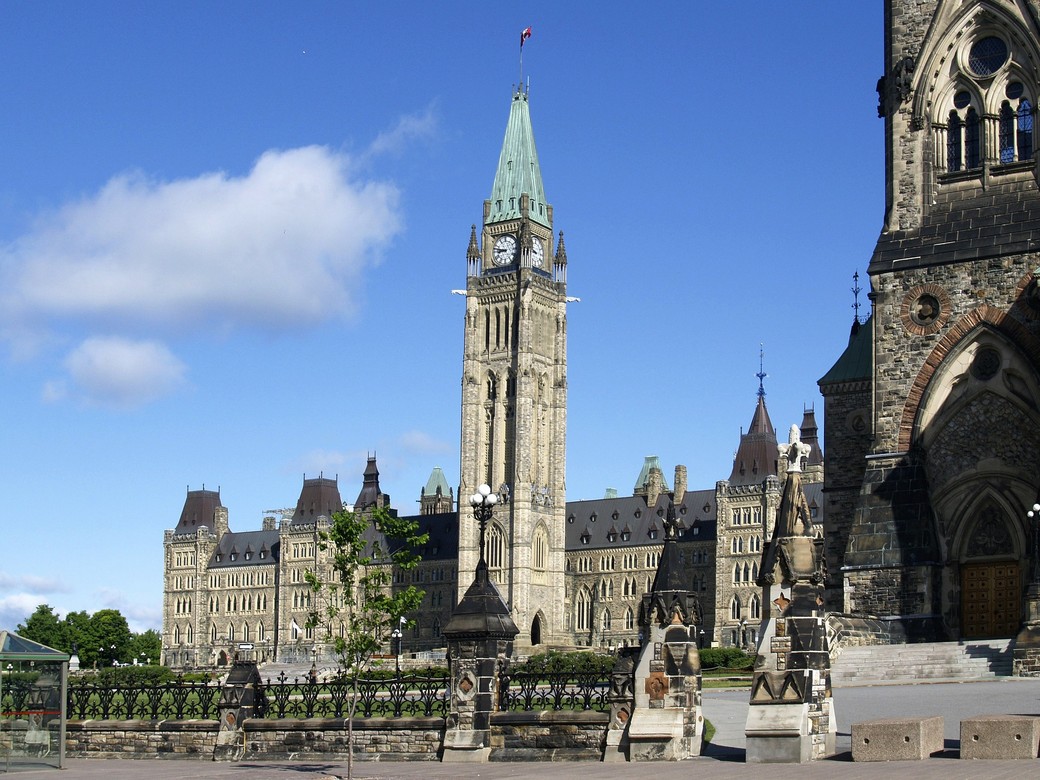
Canada Skips Dialogue of Leaders of World Religions in Astana
Photos provided by the Congress of the Leaders of World and Traditional Religions
Kazakhstan’s capital Astana is hosting an international conference gathering leaders of world religions and politicians from dozens of countries across the world. Canadian officials, however, will not be present.
The Congress of the Leaders of World and Traditional Religions was created by President of Kazakhstan’s Nursultan Nazarbayev in 2003. The conference serves as a platform for world politicians and religious leaders to engage in interfaith dialogue, seek ways to live in peace, better protect the environment and defend human rights.
In the fifth congress in Astana, delegates will discuss how working together can foster development and promote peace in the world. During the last congress in 2012, 85 religious delegations from 40 countries sat around one table, exploring solutions for building mutual understanding among inter-ethnic, inter-religious communities at home and abroad.
congress in Astana, delegates will discuss how working together can foster development and promote peace in the world. During the last congress in 2012, 85 religious delegations from 40 countries sat around one table, exploring solutions for building mutual understanding among inter-ethnic, inter-religious communities at home and abroad.
Canada has received an invitation to attend the forum. In February 2015, Kazakhstan presented the invitation to MP David Anderson, Parliamentary Secretary to the Minister of Foreign Affairs and Consular. Although Anderson would not be able to travel to Kazakhstan, he stated that Canada supports this initiative.
“Kazakhstan’s hosting of the triennial Congress of Leaders of World and Traditional Religions is a welcome initiative which Canada hopes will serve to advance religious freedom in Central Asia,” Anderson wrote in his email.
Previous years, former Canadian prime minister Jean Chrétien, Parliamentary Secretary Robert Dechert and Canada’s Ambassador for Religious Freedom, Dr. Andrew Bennett, attended the forum.
This year, however, Canada will not be sending its representatives. It’s unfortunate because the country has much to share and much to learn.
The interfaith dialog in Canada started more than five decades ago. The Christian-Jewish Dialogue movement was formed in the 1960’s. Two decades later, the National Muslim Christian Liaison Committee was created as a forum for the exchange of common concerns and interests.
In 2013, Canada launched the Office of Religious Freedom to speak on behalf of religious minorities under threat, to oppose religious hatred and promote harmony at home and abroad. Another mission of the organization is to facilitate an interfaith dialogue.
Ottawa’s interfaith dialogue is also giving sprouts.
Tom Sherwood, adjunct professor of Sociology at Carleton University, is one of the founding members and leaders of Interfaith Ottawa. The group was formed in 2001, after the 9/11 terrorist attacks as an advisory group to the mayor and the police. Sherwood says the group is still active.
“There is a lot of interfaith activity going on, and Ottawa is a leader,” Sherwood says.
Thanks to Sherwood’s efforts, Ottawa’s Carleton University started an Interfaith Chaplaincy in the fall of 2014. It’s quiet and part-time right now, Sherwood says, but it is gearing up for the new academic year at the end of the summer.
“At Carleton, we have recently transitioned in formal ways to reflect the reality, not only of the student population but the actual practices of campus chaplaincy,” Sherwood says.
In 1996, Ottawa created the Capital Region Interfaith Council, which includes representatives of Catholicism, Presbytery, Islam, Judaism, Hinduism, Baha’i, Sikhism and other confessions. The Council is meant to serve as a place for a dialogue among Ottawa’s faith communities.
This all could be shared with other countries in Astana.
Ottawa’s religious organizations and communities won’t be travelling to Kazakhstan either.
Yesbossyn Smagulov, expert in the religious studies from the Eurasian National University in Astana, says it would be great to have Canadian representatives. Kazakhstan resembles Canada in many ways: vast terrains, abundant deposits of mineral resources and scarce population.
“I think that participation of every country in the Congress in Astana provides an opportunity for an exchange of experiences and establishing closer relations,” Smagulov says.
“Canadian representatives could share their achievements in the field of multiculturalism, tolerance, religious freedoms and the way it accommodated two official languages.”
In its turn, Canada could learn how different nations, ethnic groups representing over 40 religions and confessions live in peace in Kazakhstan. Unlike neighbouring countries, Kazakhstan has avoided conflicts on ethnic and religious grounds thanks to the hard work of the government and its citizens. The concept of big diverse family is widely promoted and strongly supported across former nomadic lands.
It’s unfortunate Canada will skip the world’s gathering of religious leaders, politicians and organizations in Astana. In the era of terrorism and radicalism centered around religions, the world can’t be short of such dialogues. It’s a brilliant opportunity to discuss how to live in peace on Earth.







